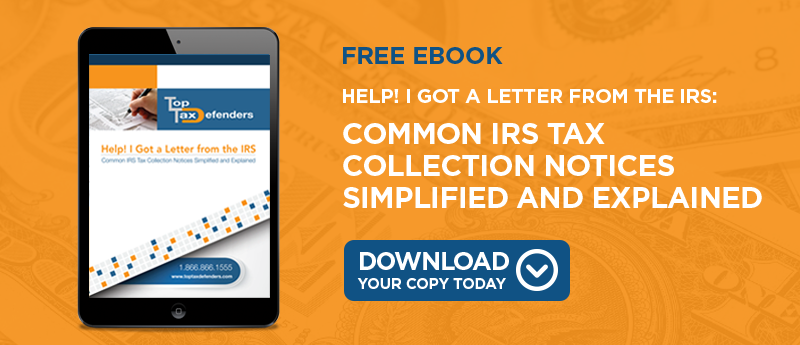
You realize you have to file and pay your taxes by the April deadline each year. Despite being aware of this obligation, you might fall short of fulfilling it. In turn, you could compromise critical aspects of your job including your ability to keep or maintain your security clearance.
Rather than jeopardize this crucial aspect of your career, you might wonder what steps you can take to get yourself and your taxes back in compliance. By learning what impact unfiled taxes have on your security clearance, you can correct the situation you might find yourself in now and prevent it from occurring again the future.
The Reasons for Security Clearance Denials
The federal government has the important obligation of only giving out security clearance to people who genuinely are qualified to receive it. Millions of people apply for security clearance each year. Out of that number, a sizable fraction are denied for reasons that include having issues with their back and current year's taxes.
In fact, some of the main reasons that people who apply for security clearance are denied include:
- Owing back taxes
- Having unfiled tax returns
- Having tax liens for delinquent owed taxes
Whenever people apply for security clearance, they are required to fill out and submit a 120-page Questionnaire for National Security Positions for the U.S. Department of Personnel. After they submit this form, the applicants are put through a rigorous background check that uncovers whether or not people owe money to the government. If they have back taxes that are owed or have neglected to file tax returns for several years, they could be denied the security clearance they are seeking.
Government officials will often deny people with delinquent taxes or tax returns because they view these individuals as not trustworthy. After all, if they cannot file and pay their taxes on time, how can they ever be trusted to follow the important rules that go along with having security clearance?
Further, people who owe back taxes are viewed as more unreliable and more likely to engage in high-risk or illegal acts to raise funds. Government officials cannot risk the security of the country on people who experience money issues because of delinquent taxes. With that, they often will deny security clearance to people who are several years behind on filing and paying taxes.
With that being said, however, it is not entirely impossible to be granted security clearance if you owe back taxes or need to get caught up with tax filings. In 2013, more than 9000 applicants were approved for clearance even though they owed a combined $85 million in back taxes.
Still, while these individuals made it under the proverbial wire to be approved for security clearance, it may be best that you do not attempt to file for it until you resolve your back tax issues. You can better your chances of being approved while also resolving your delinquent tax problems by knowing what remediation steps are available to you.
Reasons to Resolve Your Unfiled Taxes
If you have security clearance, need to renew it, or plan on applying for new clearance soon, you need to resolve your unfiled taxes immediately. Before you submit an application for this clearance, you must find out about and take advantage of the tax resolution option that is best for you. You also may want to work with a tax attorney who can advise and help you throughout the process.
In fact, statistics show that people who work with an attorney have a higher chance of resolving their back tax issues quickly and satisfactorily. They also have a greater chance of being approved for the security clearance they seek from the federal government.
Once your unfiled taxes are resolved, you can then submit an application for security clearance and know that it will be regarded more seriously than if you owed money to the government. You also have a better chance of maintaining or renewing any clearance you have been granted.
Options for Resolving Unfiled Taxes
If you are not sure what taxes you need to file and pay, you should hire a tax attorney who can research your tax records and discover what years are missing from your filings. Once your lawyer knows what years you need to file, he or she can locate the forms needed to get you caught up with the IRS.
When you end up owing the IRS money, you have different options for getting your tax debt dealt with quickly and easily. If you owe thousands of dollars, you might not be able to make a lump sum payment to the federal government. You may need to figure out a way to address the debt without liquidating everything you own.
Your first option could be to ask for an installment agreement from the IRS. To make this request, you need to fill out IRS Form 9465. You can find this form on IRS.gov. Your tax attorney can also download and print if off for you.
If you owe less than $50,000 to the IRS, you can use this form to set up a payment arrangement that will let you pay off the debt over the course of the next six years. The amount of your payments will be based on what you earn on monthly basis and also the value of the assets you have available to you.
If you owe more than $50,000, you can still qualify for and request an installment agreement. However, the IRS may need to grant you more than six years to pay off what you owe.
Another option you have is to request an Offer in Compromise using IRS Form 656. An Offer in Compromise, sometimes called an OIC, allows you or your attorney to negotiate a settlement for less than what you owe. The settlement offer must be reasonable and based on what you earn and the value of any assets that could be liquidated.
Your tax attorney can advise you on what option is best for you to resolve your unfiled taxes. Once your unfiled taxes are dealt with satisfactorily, you may then apply for security clearance from the government. You also could maintain or renew clearance you already have.




